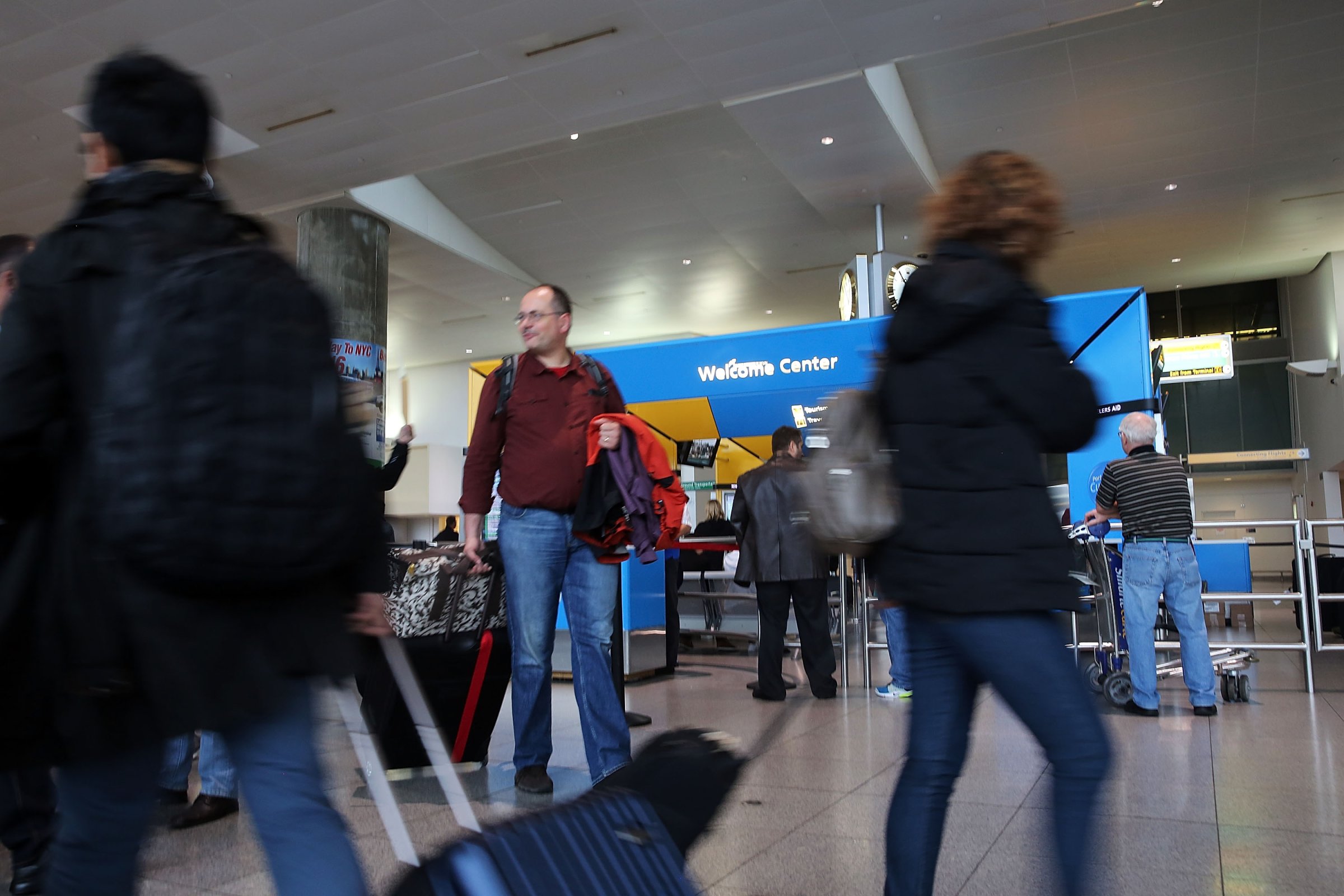
All travelers entering the United States from Liberia, Guinea, and Sierra Leone will now be actively monitored for Ebola-like symptoms by state and local health officials for 21 days upon landing in the U.S., the Centers for Disease Control and Prevention announced on Wednesday. Those three West African countries are the hardest-hit by a recent outbreak of the deadly disease, and about 150 people travel from them to the U.S. every day.
CDC Director Dr. Tom Frieden announced the new program as the U.S. began requiring travelers from those three countries to arrive in the country through one of five airports performing intensive screening procedures. The new monitoring program will start on Monday in New York, Pennsylvania, Maryland, Virginia, New Jersey and Georgia, the six states where most travelers from the three countries end their trips.
When travelers from the three West African countries arrive in the U.S., they will be given an explanatory kit that includes a thermometer and will be asked to provide two email addresses, two telephone numbers, a home address and an address for the next 21 days. They will also need to provide the same information for a family member or friend. Travelers will be asked to report to a public health worker from a state or local health department daily, providing a temperature as well as well reporting any symptoms. They must also inform officials if they plan to travel, and if so, they must coordinate their tracking their symptoms with health officials.
“We have to keep up our guard against Ebola,” said Frieden, adding that it’s the “CDC’s mission is to protect Americans.”
More Must-Reads from TIME
- Donald Trump Is TIME's 2024 Person of the Year
- Why We Chose Trump as Person of the Year
- Is Intermittent Fasting Good or Bad for You?
- The 100 Must-Read Books of 2024
- The 20 Best Christmas TV Episodes
- Column: If Optimism Feels Ridiculous Now, Try Hope
- The Future of Climate Action Is Trade Policy
- Merle Bombardieri Is Helping People Make the Baby Decision
Contact us at letters@time.com